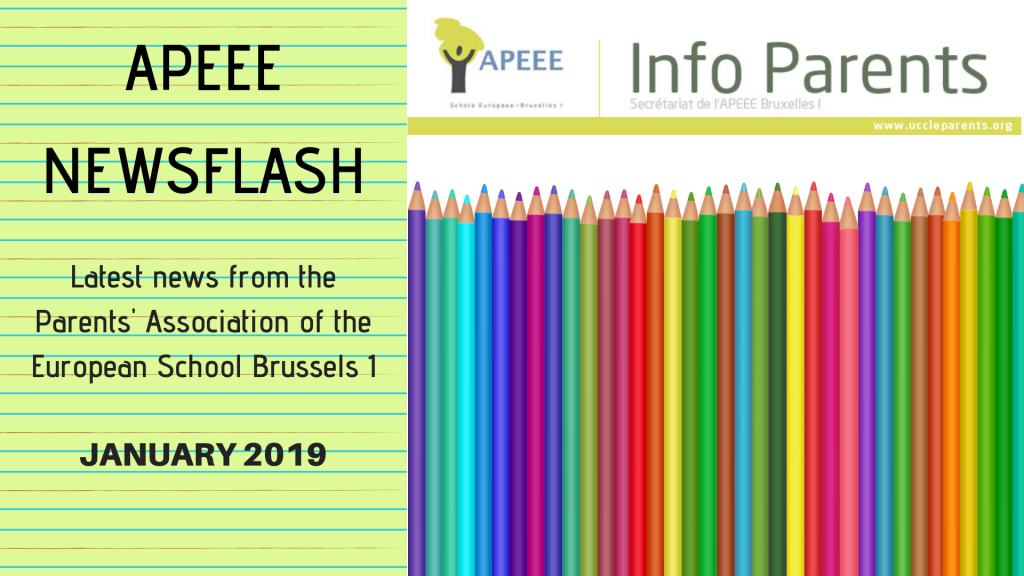
IN THIS ISSUE
- 2017-2018 Activity Report
- APEEE Board election results
- Extraordinary General Assembly on 22 January to approve new statutes
- APEEE invites members of the school community to request funds for projects
- Educational Support/Gifted Students Network
- EEBI Addiction Prevention Policy and Mobile Phone Policy: soliciting parent feedback
- Measures taken to protect the parents’ personal data within the APEEE Services and APEEE
- Help wanted: get involved in the APEEE’s ART&MUSIC group
LATEST NEWS AT THE SCHOOL AND BEYOND
- MUSIC at Uccle: highlights
- STEM at Uccle
- SPORTS at Uccle
- Uccle INTERNATIONAL
- Benchmarking and Assessment of our Students
- Human Rights Watch report on barriers for children with disabilities at European Schools
- “Future of the Brussels Schools” and the proposed interim solution to house S6 and S7 students at Arts-Loi
- December Board of Governors: short report from INTERPARENTS and a plea from our locally recruited teachers
- Data protection and the disco and science festival
- National sweater day
- Graffiti wall project
- Billiard table project
- Football field project
- Technical improvements
- Class representatives and the CDE
- 28 September, 15 October, 23 October, 11 December: Central Enrolment Authority
- 4 October: APEEE Board Meeting
- 15 October: Education Council Secondary
- 16 October: Education Council Nursery/Primary
- 18 October: Meeting with Slovenian SWALS
- 12 November: Meeting on Francis Pirotta Creative Arts Prize
- 21 November: Meeting with Berkendael WG
- 23 November: Meeting on Science, Technology, Engineering and Maths (STEM)
- 26 November: Meeting on Educational Support
- 27 November: Meeting with Austrian Minister of Education
- 29 November: APEEE Board Meeting
- 4 December: Education Council for Secondary
- 6 December: APEEE Annual General Assembly
- 7 December: Meeting on Data Protection
- 11 December: Meeting on working methods in the official bodies of the school
UPCOMING EVENTS AND INITIATIVES
- 26 January 2019: ADHD Open House
- Camp Waziyatah - 4-Week Sleep-Away Camp Experience in America (Maine)
- 8-9 February 2019: POLITICO EU Studies Fair
- Exchange with Italian students
- Join the Girl Guiding organisation
RETROSPECTIVE: 2018 SCHOOL FÊTE IN FOCUS
LATEST NEWS FROM THE APEEE
2017-2018 Activity Report
The 2017-2018 APEEE Annual Report, which includes the 2018-2019 budget, is out!
|
APEEE Board election resultsThe General Assembly (GA) of the APEEE held in Brussels on 6 December elected five new members of the APEEE Board:
The members elected by the language sections on 8 November to sit on the APEEE Administrative Board (CA) were approved by the same GA. The official lists of APEEE Board Members and Education Committee (CE) Members are available on the APEEE website: |
Extraordinary General Assembly on 22 January to approve new statutesThe APEEE Statutes have been revised to formally include representatives from the Berkendael site as well as a SWALS representative in the APEEE Administrative Board. Yet, the General Assembly of 6 December did not manage to approve the revised Statutes; the quorum of the 358 parents’ representatives (2/3) was not reached (though 155 of the 183 voters were in favour of the proposed amendments). For this reason, an extraordinary General Assembly will be called on 22 January 2019 at 19h00. All parents are invited to attend. Registration is mandatory to access the school before Monday 21 January at midnight. Please click here to register. |
Francis Pirotta Creative Arts Prize
He used to spend countless hours drawing. It was by far his favourite pastime and an opening into his world. It was also his favourite school time activity, to the extent that in his mind it was more important than any other activity or lesson. He passed away suddenly on 24 May 2018. The future is now beyond his reach; this prize commemorates his short but creative life and ensures that his spirit and determination remain alive through the creativity of other children… At our November meeting, the APEEE Administrative Board agreed to help run and provide funds for an annual Francis Pirotta Creative Arts Prize. The theme of the competition, which will be run in cooperation with our nursery and primary programmes, will be decided each year based on the loves, interests and imagination of Francis. Each prize will be a shared experience and will be awarded to a whole class.
Interested in similar projects? Please see our Community Building Working Group.
|
LEGO Mindstorms Robotics Pilot ProjectDu At our November meeting, the APEEE Board agreed to provide co-funding for the purchase of 16 Lego Mindstorms EV3 sets. These sets will be used as part of a project week pilot project but should also be used by the school in early secondary ICT courses and in special teaching or extra-curricular modules. It was felt that Mindstorms provided a good early introduction to robotics and coding; sets also come with a rich supply of instructional and educational material that will help guide teachers in their use. The APEEE hopes these sets will spark student interest in computing and electronics during their formative years and will complement the more advanced facilities and equipment offered by the FabLab. LEGO Project background Interested in similar projects? Please see our PedGroup’s STEM group. |
Educational Support/Gifted Students NetworkFor two years, the APEEE's Pedagogical Working Group (PedGroup) has included a sub-group on educational support coordinated by Sven Matzke. The subgroup has recently set up two networks of parents dealing with (1) educational support and (2) gifted pupils. The aim of both networks is to provide interested parents with relevant information and to organise dedicated meetings for an exchange of experience. Parents having an interest in educational support and/or support for gifted pupil can address their questions to info@uccleparents.org. Please indicate clearly your name, email address and the network in which you are interested. Interested in similar projects? Please see our PedGroup’s Educational Support subgroup. |
EEBI Addiction Prevention Policy and Mobile Phone Policy: soliciting parent feedbackThe APEEE has solicited feedback from all parents through section and class representatives on the following two positions:
Section representatives have been asked to send out the following two attachments to all class representatives and to coordinate the feedback on both issues from their sections, keeping primary and secondary separate. Each section representative should summarise the opinions of his/her section by 11 January 2019 and submit to APEEE, after which two position papers will be drafted by the Bien Etre Working Group to be discussed, adapted as needed and agreed at APEEE’s CA/board meeting on 22 January. Please contact your class and section representation if you do not receive these requests for feedback. We have included the opinion of the Student Committee (CdE) on both topics for your interest.
Interested in similar projects? Please see our Well-Being Working Group. |
Measures taken to protect the parents’ personal data within the APEEE Services and APEEEThe APEEE Services has started the necessary process to comply with the General Data Protection Regulation (GDPR). The decision was taken to use an external data protection officer (DPO). The APEEE Services is taking care of all necessary procedures for both itself and the APEEE. Parents who benefit from the APEEE Services and who haven’t already done so are kindly requested to log into https://services.uccleparents.org/node/1 and ACCEPT or REFUSE to give their consent for the sharing of data between the School and the APEEE Services. Without this consent, the APEEE Services will not be able to guarantee services to the families concerned. Interested in similar topics? Please see our Legal Working Group's Data Protection group. |
LATEST NEWS AT THE SCHOOL AND BEYOND
Music at Uccle - Highlights
S7 music class: report from Cuba trip
The music learnt in Cuba was performed at the school’s Christmas Concert on 2 December: Chan chan: The “Cuba Squad” – Astrid, Mia, Kat, Juan, Nicky, Benny and their music teacher Andrea Kovacs – express their gratitude to all those who supported their initiative. |
Christmas Concert
Interested in similar topics? Please see our PedGroup's Art&Music group. |
STEM at Uccle
11th Annual EEBI Science Festival ResultsThe EEBI Science Festival is an annual event open to all secondary students. It is a great opportunity for students to try their hand at real experimental science, working closely in a group under the guidance of teachers and mentors. It is also the selection event for the annual European School Science Symposium (ESSS), a competition hosted each year by a different European School, and for the annual Belgian Science Expo. EEBI has a tradition of sending strong teams to these events and has produced quite a few winning projects over the years. This year is no exception. This year there were 19 projects all together, and a total of 29 students participating. Projects covered a range of topics from physics and astronomy, to ecology and biology and chemistry, to sociology and psychology. Teams included: 6 Polish, 4 Spanish, 3 Italian, 2 English, 2 Hungarian, 1 French and 1 Danish section team. There were: 12 projects from S1-S3 students and 7 projects from S4-S7 students. Thanks to our enthusiastic teaching staff, more than 900 students visited the presentations on the day, and over 1000 students followed the Science Festival via Live Stream. The winning projects were: Seniors
Juniors
The medals were designed and 3D printed especially for the event by Stéphane Boulay of the EEBI Fabrication Laboratory (FabLab). Prizes included a drone with camera (1st prize), tickets to the Carantine Escape Room (2nd prize) and power-banks (3rd prize). The projects chosen to represent EEBI at further competitions were selected based on the criteria and profile of each competition. The list is as follows: ESSS (ESMol, 31 March - 03 April 2019)
Belgian Science Expo (Tour & Taxis, 26 April - 28 April 2019)
The science festival jury panel was composed of seven teachers representing different language sections, one parent-scientist and one former winning student. The panel included: Gema Trives (ES chemistry), Regin Pindstrup (DK biology/chemistry), Michaël Theunissen (FR physics), Giuliano Cattaneo (IT biology/chemistry), Renard Naidoo (EN biology/chemistry/maths), Grazyna Piotrzkowska (PL physics), Berta Nagyné Hermann (HU chemistry/maths), Line Fredslund (DK parent) and Julilla Roboz (HU student). See also: LEGO Mindstorms Robotics Pilot Project |
SPORTS at Uccle
ESB Octopus obtains 13 medals, including 2 golds, at the long-distance swimming finals
On the weekend of 24-25 November, swimmers representing the different European Schools of Brussels participated in the long-distance swimming finals of the European Forces Swimming League (EFSL) held in Bruges. They obtained 13 medals, including two gold, at the 400, 800, 1500 meters free style, and 400 meters individual medley races. Two students of the European School of Uccle were amongst the medalists: Giulia Solaini (one gold, two silvers) and Attila Sallai (two silvers). These achievements are the results of a qualification process that started in September…and a lot of training. The competitions are still ongoing, the next objective being the finals of other races that will be held in Eindhoven (the Netherlands) on 2-3 March 2019. Many swimmers of the European Schools have already qualified. To know more about the ESB Octopus, or even to join the team, please contact us at: team.esb.octopus@gmail.com Interested in similar topics? Please see our PedGroup’s Sport group. |
Uccle INTERNATIONAL
Benchmarking and Assessment of our Students
Update on New Secondary Marking Scale: what should parents expect?The new secondary marking scale has been rolled out, and there is already “buzz” from parents, teachers and school management in various parts of the system. Yet, the Uccle community has remained relatively quiet on the topic. We feel that it is a good moment to pose the question...what should we, as parents, be expecting from the new marking scale? At the School Advisory Council (SAC) and School Administrative Board in September, parent representatives raised the questions: what changes are expected from the new marking scale? And how will we measure whether its implementation has been successful? The response from the school administration and central office was essentially “wait and see.” We were reminded that the new marking scale is only a small piece of a much broader change in approach to assessment that promises to be fairer, more harmonised across sections and more transparent, especially for students and parents. (For details see: https://www.eursc.eu/en/European-Schools/studies/marking-scale) This competence-based approach has already been in use in the primary for several years and has been well received by stakeholders. So then, what should we expect from the competence-based approach?
Parents are thus encouraged to familiarise themselves with the so-called learning objectives, assessment criteria and attainment descriptors that now accompany every secondary syllabus, and should show up to meetings with teachers well armed with information on the skills, competences and levels of attainment expected for success in the course. Sample of attainment descriptors (excerpt from S3 Mathematics descriptors)
That being said, there is a concern from all sides that with the lowering of the pass threshold to a 5 rather than a 6, teachers may be tempted to perform a direct “conversion” of old marks to new marks. In this case, the results could go one of two ways: 1) teachers perform a “straight-across conversion” (e.g. from 9 to 9, 8 to 8, and so on) leading to a higher pass rate but little other impact on student assessment, or 2) the teachers do not pass more students but “spread” passing results among more marks—inevitably leading to a decrease in the average. Either of these comes with risks: the first risks the reputation of the Baccalaureate and the second risks the prospects of our children. We can only hope that our teachers will eschew the temptation to “convert”, and we should guard against this tendency in ourselves. Importantly, over the next year or so all member states need to go through a process of re-evaluating the equivalence tables or algorithms in order to adjust for the new marking scale in time for the Baccalaureate 2021. The equivalence tables/algorithms interpret European Baccalaureate results into national admission criteria, and are used to determine the admission of ES students into national university systems. Sample equivalence table from UCAS (Universities and Colleges Admissions Service) in the U.K.
The fear is that some member states may not manage this, while others may inadvertently put up barriers to entry. (See: New German state equivalence table for European Baccalaureate.) We would urge parents in each section, and particularly those with children in S5 or S4, to be in contact with their national inspectors to ensure that this process is undertaken properly. If you have any concerns in this regard, please do not hesitate to contact us at: info@uccleparents.org |
European Baccalaureate results: online data tells us moreHow do our kids measure up against those in other schools? Which subjects do we really excel at and which need work? How do results in my section compare with those of other sections at Uccle? Or with my section at other schools in Brussels? In 2017, the European School Baccalaureate Unit launched an online version of the European Baccalaureate Results. The online version is not unlike the printed version, providing a breakdown of results according to a range of criteria. However, the online version has one key advantage over the printed version; it allows users to filter and cross-filter data in more detail, making possible the comparison between the results by subject in the same section at different schools or those of different sections at the same school. We encourage parents to look through the online version of the Bacc results and to try out some of the filters offered through the black tab marked “Online”: http://schola-europaea.eu/bacc/report/2018/mobile/index.html (See in particular, data listed under “Literary subjects”, “Scientific subjects”) **Please note that statistical breakdowns of this sort should always be taken with a grain of salt. It is difficult to know the exact cause of high or low scores in a particular class, cohort, section, school or year group, and scores are often a reflection of several factors.** Interested in similar topics? Please see our PedGroup’s BAC, Evaluation and Orientation group. |
Human Rights Watch report on barriers for children with disabilities at European Schools
Summary: The 22-page report, “‘Sink or Swim’: Barriers for Children with Disabilities in the European School System,” found that while European Schools are paying increasing attention to inclusion, children with disabilities continue to face problems. They are rejected, pressured into changing schools, or are not provided with appropriate accommodations and support to allow them to learn and thrive in an inclusive environment. The full report is available in English and French. Here you can find the press release in English and French. Interested in similar topics? Please see our PedGroup’s Educational Support subgroup. |
"Future of the Brussels Schools” and the proposed interim solution to house S6 and S7 students at Arts-LoiA meeting of the Brussels Steering Group (Groupe de Suivi) was convened on Thursday, 25 October, to follow up on developments that have taken place since the 22 June meeting of the same group on the topic of the "Future of the Brussels Schools". Unfortunately, there were very few concrete developments. The progress is as follows:
These several related issues were scheduled to be treated at a meeting of the Belgian Council of Ministers in mid-October, but now it seems that they will only be tabled early in the new year. A new meeting of the Brussels Task Force was envisaged for mid-November, but all is on hold awaiting the agreement of the Belgian Council of Ministers. In advance of the 23 October meeting, the EEBI, EEBII and EEBIII APEEEs signed a letter to the Belgian Vice Prime-Minister Jan Jambon, asking the Belgian government to address a list of concerns about the proposal and urging that alternative solutions be considered. Parent concerns include environmental, security-related, educational and logistical obstacles. High among these were: a potential shortage of teachers; long commutes for both teachers and students; lack of appropriate and sufficient internal courtyards and non-suitability of external space for students of this age; lack of sports facilities and canteen capacity; serious transport difficulties in daily commuting; and most importantly the removal of students from their well-functioning school environment in critical years of their studies. These three APEEEs have agreed to seek legal advice to support them through the process. The EEBI APEEE board has approved funds of up to 2000 EUR toward this common legal support—which may total as much as 12000 EUR by the end. The APEEEs have also addressed their concerns orally at the Board of Governors and in writing to the Commission's Union Syndicale. Finally, they have addressed a note to Commissioner Oettinger asking to halt the process until stakeholders have been fully informed and involved in the decision making. Simply put, the proposal seems to have become “too big to fail”; we have been told that there are no other solutions and no back-up plan. You are invited to consult the related documents for more details on this.
|
EURÊKA
Eurêka calls for volunteers!
|
STUDENT COMMITTEE UPDATE
National sweater day
|
Billiard table project
The CdE have yet to send the project proposal, but they have already contacted "Kickers Belgium", a firm specialised in the delivery, customisation and set-up of billiard and kicker tables. Looking at models, there is an indoors 210cm by 128cm which costs 1900€ and 400€ for delivery/setup, with ten years guarantee (“Tennessee”). Outdoor models are also being considered for their waterproofness. The CdE plans on having a meeting with the School administration to discuss the necessary aspects of the project (i.e. placement of the table, supervision, type of table). (In the picture: Model Tennessee) |
APEEE MEETING REPORTS
Reports of recent meetings attended by your parent representatives
4 October: APEEE Board MeetingAgenda items discussed: proposal for financial procedure to award funding on school projects; proposal for modifications to the APEEE statutes to include Berkendael and SWALS; proposal to increase the proportion of representation from the French section; funding requests for S7 student trip to Cuba and teacher appreciation drinks; preliminary financial results of school fete; data protection update from APEEE Services. The official minutes are availalbe online. |
25 October: Groupe de Suivi on the future of the European Schools in BrusselsThe meeting was attended by the directors, teacher and parent representatives from the four schools as well as representatives of the Commission, representatives of the Belgian government and Régie des Bâtiments, and the Secretary General. Like the 22 June meeting, the 25 October meeting of the Groupe de Suivi focused on developments reported in the “Brussels Task Force”. The 14 September meeting of the task force treated delays in the provision of the fifth European School in Brussels. This included the proposed opening for the fifth school on the NATO site in 2024, the donation of Berkendael to the European Schools as a permanent site and the proposed creation of a temporary site at Arts-Loi for S6-S7 pupils to be opened in September 2020. The decision on all three proposals is expected to be taken by the Belgian Council of Ministers in the first months of 2019. (See article: “Future of the Brussels Schools” and the proposed interim solution to house S6 and S7 students at Arts-Loi) |
12 November: Meeting on Francis Pirotta Creative Arts PrizeThe parents of Francis Pirotta, an EN representative and the APEEE President met with the Director Mr Goggins and Deputy Director Ms Cajhen to discuss a proposal to create a creative arts competition for primary students in memory of Francis Pirotta and reflecting his interests, his talents, his dreams. The parties agreed that the competition would be run jointly by the APEEE and the school with the APEEE initiating the annual programme and providing funds for prizes and with the school handling communication to and organisation of classes that chose to take part. The themes and modalities will be set each year and prizes will be given to whole classes. The Pirotta family and the APEEE would also like to contribute an installation for the playground in Francis’s name later this year. (See article: Francis Pirotta Creative Arts Prize) |
23 November: Meeting on Science, Technology, Engineering and Maths (STEM)The coordinator and members of the APEEE PedGroup’s STEM working group and the APEEE President met with Director Mr Goggins, Deputy Director Mr Roesen and teachers Mr Boulay, Mr Theunissen and Ms Csonka. The meeting was intended to cover the FabLab, the Science Festival and extracurricular STEM activities. In the end only FabLab was discussed in depth—in particular, how we might increase the use of the facilities/equipment among students, and in particular among early secondary students. Ideas suggested were: expanded hours for staff; training for teachers; introduction of “mobile" equipment for classroom use, particularly in the primary; and more extensive use of the FabLab in S1-S5 ICT classes. The possibility of having Cesame or other external courses through the FabLab was not ruled out. In connection with the FabLab, we also discussed the Lego Mindstorms Pilot Project. (See article: LEGO Mindstorms Robotics Pilot Project) |
6 December: APEEE Annual General AssemblyAgenda items: Q&A by the director; 2017-2018 financial report approved and 2018-2019 budget approval; administrative discharge given to board; statute modifications voted (lack of quorum); 5 non-affiliated board members elected; 5 new board members appointed by sections approved. Minutes of the 2018 General Assembly |
UPCOMING EVENTS AND INITIATIVES
26 January 2019: ADHD Open House
|
Camp Waziyatah - 4-Week Sleep-Away Camp Experience in America (Maine)
Representatives will be in Europe from 16 January to 3 February. Visit Camp Waziyatah’s website or Contact carl@wazi.com for more information and/or to arrange a meeting. You may also contact Luis Escobar Guerrero for references directly from a parent who has already sent their children to the camp. |
8-9 February 2019: POLITICO EU Studies Fair
This one-stop-shop event allows leading universities to showcase their courses in EU studies, international relations, economics, law, business, management, and public policy, to a selected and highly-engaged international audience, while prospective students receive first-hand information and tailored advice on the programs that interest them. The event is completely free. Find it here. It will include:
|
Join the Girl Guiding organisation
The Girl Guiding units are split according to age with the 5-7 year old's going to Rainbows, the 7-10 year old's Brownies, the 10-14 year old's Guides and the 14-18 year old's attending Rangers. The units currently meet in Tervuren, Kraainem, Etterbeek and Waterloo. They are also looking for adult volunteers to become unit (assistant) leaders, run events, help at camps or sleepovers, do administrative tasks. You name it they can find something to suit you! They offer in-house and online training for prospective volunteers depending on the role. If you would like more information for your daughter or have a few hours to spare yourself please contact Jane Ellaby at: dc.brusselswaterloo@outlook.com or take a look at the Girlguiding UK website: https://www.girlguiding.org.uk/. |
RETROSPECTIVE: 2018 SCHOOL FÊTE IN FOCUS
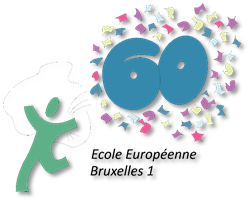
A final evaluation of the 2018 School Fête, held on the Uccle campus on 26 May, shows excellent results in terms of quality of activities and satisfaction of the participants. The Fête involved many meetings, impressive coordination, good contacts with the School and students, a new organisation (sub-coordinators), online orders for tickets and payments by bank card, and high quality supplies. Security was well managed, knowing that at certain times more than 6,500 parents were on site. Some financial figures: 55,233.14 EUR of income deposited in the bank, just over 34,000 EUR of expenses. The profit after deducting the receipts of the charities amounts to about 23,000 EUR. With this profit the APEEE will organise a call for projects to be carried out with the School’s agreement.
Fête 2018 programme |
ICYMI - IN CASE YOU MISSED IT
Berkendael Newsletter
|
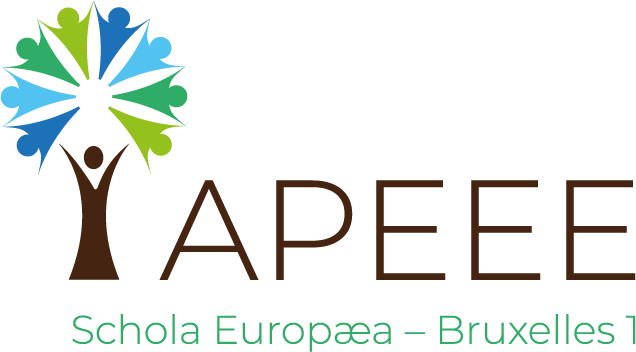
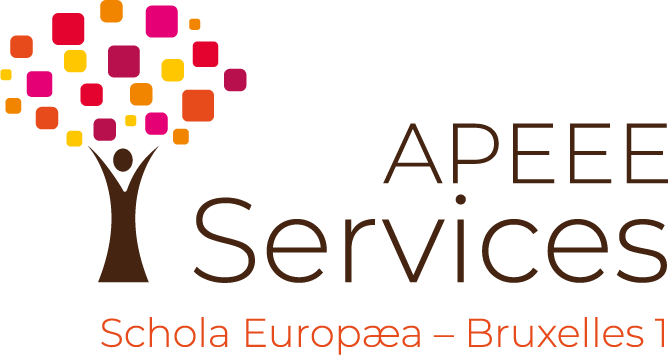


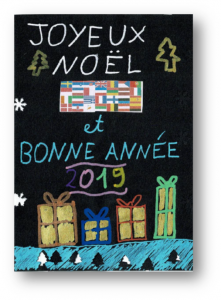

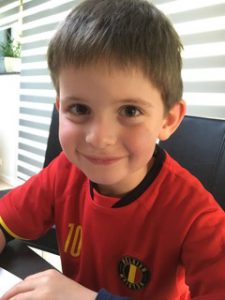 Francis Pirotta was in the second year nursery class (English section), a Maltese and Latvian national.
Francis Pirotta was in the second year nursery class (English section), a Maltese and Latvian national.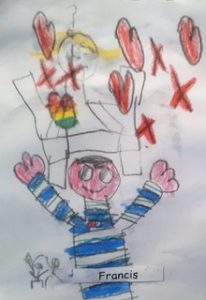

 The APEEE Pedagogical Group (PedGroup) is looking for a parent interested in Arts and Arts Education to help lead ART&MUSIC group. The PedGroup treats a range of pedagogical issues at the school and higher levels through dedicated subgroups.
The APEEE Pedagogical Group (PedGroup) is looking for a parent interested in Arts and Arts Education to help lead ART&MUSIC group. The PedGroup treats a range of pedagogical issues at the school and higher levels through dedicated subgroups.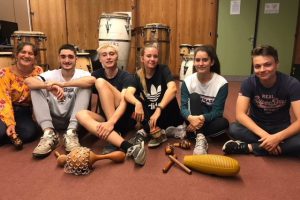 Students of the S7 music class (MU4ENA) journeyed to Cuba at the end of October for a weeklong programme. They had two main stops: Havana for five days and Varadero for two days. While there, they were able to gain first-hand experience of Cuba’s amazing culture, history and, of course, its music.
Students of the S7 music class (MU4ENA) journeyed to Cuba at the end of October for a weeklong programme. They had two main stops: Havana for five days and Varadero for two days. While there, they were able to gain first-hand experience of Cuba’s amazing culture, history and, of course, its music.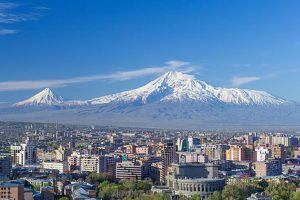
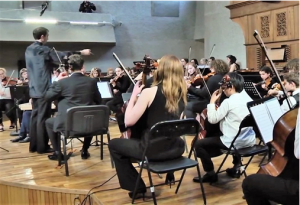
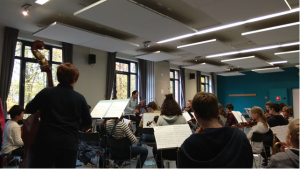 The symphony orchestra met for an intensive rehearsal weekend at Hanenbos on 10-11 November. Woodwind and string sections had the opportunity to work their parts intensively for the December 2nd Christmas Concert and for the new Film-Music Project on the journey to San Remo. The weekend ended with a tutti run-through of the music of the “Lord of the Rings” suite on Sunday.
The symphony orchestra met for an intensive rehearsal weekend at Hanenbos on 10-11 November. Woodwind and string sections had the opportunity to work their parts intensively for the December 2nd Christmas Concert and for the new Film-Music Project on the journey to San Remo. The weekend ended with a tutti run-through of the music of the “Lord of the Rings” suite on Sunday. On Sunday 2 December, the School and Césame presented their traditional Christmas concert at the Royal Conservatory in Brussels. Several groups participated (Césame choir, primary and secondary, chamber orchestra and philharmonic orchestra, Big Band, guitar group and S7 students group) allowing a large number of students to present the results of their work on stage. We warmly thank all the participants for their performance and the spectators for their enthusiastic support. Save the date of 1 December 2019 for the next concert!
On Sunday 2 December, the School and Césame presented their traditional Christmas concert at the Royal Conservatory in Brussels. Several groups participated (Césame choir, primary and secondary, chamber orchestra and philharmonic orchestra, Big Band, guitar group and S7 students group) allowing a large number of students to present the results of their work on stage. We warmly thank all the participants for their performance and the spectators for their enthusiastic support. Save the date of 1 December 2019 for the next concert!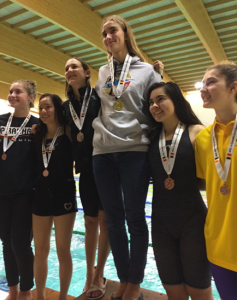
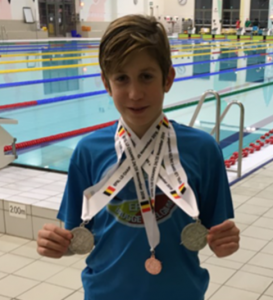
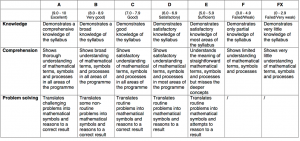
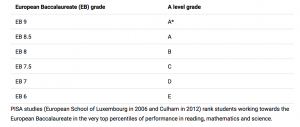
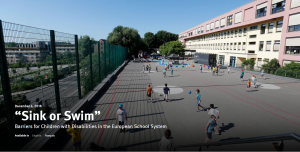 The APEEE's Educational Support group would like to share with parents a report on “Barriers for children with disabilities at European Schools” compiled by Human Rights Watch and the European Disability Forum and released on 4 December 2018.
The APEEE's Educational Support group would like to share with parents a report on “Barriers for children with disabilities at European Schools” compiled by Human Rights Watch and the European Disability Forum and released on 4 December 2018.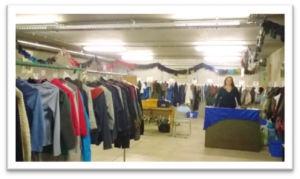 Eurêka, the lost and found service, urgently needs additional volunteers, and in particular from the FR, PL and DE sections, which are poorly represented among current volunteers. This would allow Eurêka to continue the Friday noon openings every week. An availability of two hours once a month is enough to help. Please contact the
Eurêka, the lost and found service, urgently needs additional volunteers, and in particular from the FR, PL and DE sections, which are poorly represented among current volunteers. This would allow Eurêka to continue the Friday noon openings every week. An availability of two hours once a month is enough to help. Please contact the 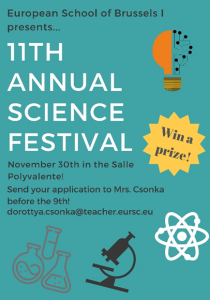 The EEBI Science Festival held on 30 November was watched by an estimated 1200 students and teachers thanks to the livestreaming. The projects were of high quality and the new posters made students excited about the event. There were 19 projects, which the Students’ Committee (CdE) hopes to increase for next year.
The EEBI Science Festival held on 30 November was watched by an estimated 1200 students and teachers thanks to the livestreaming. The projects were of high quality and the new posters made students excited about the event. There were 19 projects, which the Students’ Committee (CdE) hopes to increase for next year. The CdE thanks the School’s management for supporting and approving this project held on 10 December. It went well and was executed as planned.
The CdE thanks the School’s management for supporting and approving this project held on 10 December. It went well and was executed as planned.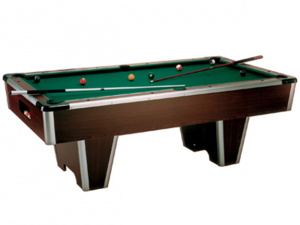
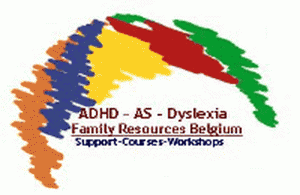 ADHD, ASC & LD Belgium will have an “Open House” on 26 January 2019 from 13.00 to 16.30. The event will foresee free consultations, small group talks, demonstrations with a variety of healthcare professionals to help children or teens with ADHD and/or the autistic spectrum. There will also be a Burn Out specialist who might be helpful for parents.... Members: Free of Charge / Non-Members: 12 EUR. Further information:
ADHD, ASC & LD Belgium will have an “Open House” on 26 January 2019 from 13.00 to 16.30. The event will foresee free consultations, small group talks, demonstrations with a variety of healthcare professionals to help children or teens with ADHD and/or the autistic spectrum. There will also be a Burn Out specialist who might be helpful for parents.... Members: Free of Charge / Non-Members: 12 EUR. Further information: 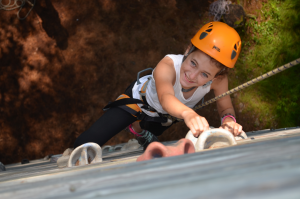 Camp Waziyatah is the Highest Rated Camp in Maine and home of the Disney Channel Show “Bug Juice: My Adventures at Camp”. Why? It’s all about the atmosphere. Wazi has a uniquely kind and welcoming environment with no cliques or groups and no worries about fitting in. It’s an absolute BLAST, where kids make memories and best friends that last a lifetime. With more than 30 activities in a stunningly beautiful setting, Wazi has 98 years of know-how in being the perfect Maine camp experience.
Camp Waziyatah is the Highest Rated Camp in Maine and home of the Disney Channel Show “Bug Juice: My Adventures at Camp”. Why? It’s all about the atmosphere. Wazi has a uniquely kind and welcoming environment with no cliques or groups and no worries about fitting in. It’s an absolute BLAST, where kids make memories and best friends that last a lifetime. With more than 30 activities in a stunningly beautiful setting, Wazi has 98 years of know-how in being the perfect Maine camp experience.  The 20th edition of POLITICO‘s EU Studies Fair is scheduled for 8-9 February 2019 in Brussels.
The 20th edition of POLITICO‘s EU Studies Fair is scheduled for 8-9 February 2019 in Brussels.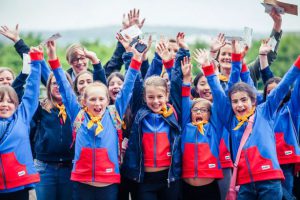 Does your daughter speak fluent English and would she like to join the Girl Guiding organisation? (For those not familiar with Girl Guiding, it’s the female equivalent of British scouts.)
Does your daughter speak fluent English and would she like to join the Girl Guiding organisation? (For those not familiar with Girl Guiding, it’s the female equivalent of British scouts.)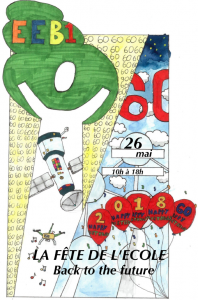
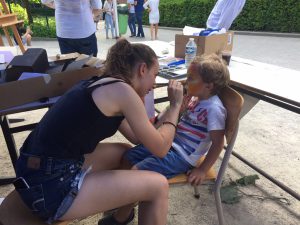 This year’s Fête could boast almost twice the number of registered initiatives as we had last year, facilitated by an online registration system that allowed stand organisers to enter their own information and technical requirements. With the advice and strong involvement of the CDE, efforts were made to appeal to secondary students, who had been targeted little by previous Fêtes: their presence despite upcoming exams attests to the success of this drive. More emphasis on the arts and interactive activities sought to balance with previous years’ focus on sports and food. An improved distribution of stands and activities around campus aimed both to accommodate the larger numbers of activities and to balance the flow of visitors around the site. As a result, quieter spaces for appreciating Italian drama or relaxing on the grass at a “table de campagne” alternated with the hyper-excitement of bouncy labyrinths and the passion of football tournaments, and many other possibilities between the two extremes. Clusters of activities, such as the Science Hub and the Solidarity Village, succeeded in drawing specialised interest in these areas, although it was noted that fewer Fête visitors seemed to feel like thinking about the role they could play in the world’s challenges than indulging in paella, pizza, Polish sausages and pure play. Linking these varied activities was the “Back to the Future 1958” theme, which inspired the style of many of the stands.
This year’s Fête could boast almost twice the number of registered initiatives as we had last year, facilitated by an online registration system that allowed stand organisers to enter their own information and technical requirements. With the advice and strong involvement of the CDE, efforts were made to appeal to secondary students, who had been targeted little by previous Fêtes: their presence despite upcoming exams attests to the success of this drive. More emphasis on the arts and interactive activities sought to balance with previous years’ focus on sports and food. An improved distribution of stands and activities around campus aimed both to accommodate the larger numbers of activities and to balance the flow of visitors around the site. As a result, quieter spaces for appreciating Italian drama or relaxing on the grass at a “table de campagne” alternated with the hyper-excitement of bouncy labyrinths and the passion of football tournaments, and many other possibilities between the two extremes. Clusters of activities, such as the Science Hub and the Solidarity Village, succeeded in drawing specialised interest in these areas, although it was noted that fewer Fête visitors seemed to feel like thinking about the role they could play in the world’s challenges than indulging in paella, pizza, Polish sausages and pure play. Linking these varied activities was the “Back to the Future 1958” theme, which inspired the style of many of the stands.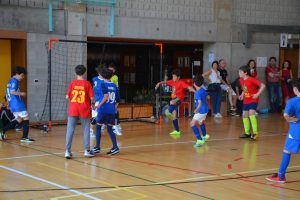 Our Fête excelled in the area of sport this year. The Fete Committee introduced an extended primary football tournament this year to allow more children to have the opportunity to play full games. The preliminary games took place on weekends in April and culminated in the semi-final and final matches which were played on the day of the Fête. Trophies for the winning teams were given out at the end of the day in an official awards ceremony officiated by the APEEE Sports Coordinator and the School Director, Ms Ruiz Esturla. Secondary football tournaments were also organised, S1-S4 tournaments were coordinated by parents while the S4-S7 tournament was organised by the students themselves. Students also undertook to organise Volleyball and Basketball tournaments so several courtyards of the upper campus were "taken up" with sport. A chess tournament was waged nearby to round out the sporting activities. Luckily several refreshment stands, including gelato, Polish BBQ and smoothies, were set up in the area to cater to the crowds of players and fans. To complement the tournaments, there were also several less competitive family-style events, such as the Badminton family event and several Césame martial arts demonstrations. The 60th Anniversary Fête was one of the most sporting in recent memory. We hope that this is the beginning of a tradition!
Our Fête excelled in the area of sport this year. The Fete Committee introduced an extended primary football tournament this year to allow more children to have the opportunity to play full games. The preliminary games took place on weekends in April and culminated in the semi-final and final matches which were played on the day of the Fête. Trophies for the winning teams were given out at the end of the day in an official awards ceremony officiated by the APEEE Sports Coordinator and the School Director, Ms Ruiz Esturla. Secondary football tournaments were also organised, S1-S4 tournaments were coordinated by parents while the S4-S7 tournament was organised by the students themselves. Students also undertook to organise Volleyball and Basketball tournaments so several courtyards of the upper campus were "taken up" with sport. A chess tournament was waged nearby to round out the sporting activities. Luckily several refreshment stands, including gelato, Polish BBQ and smoothies, were set up in the area to cater to the crowds of players and fans. To complement the tournaments, there were also several less competitive family-style events, such as the Badminton family event and several Césame martial arts demonstrations. The 60th Anniversary Fête was one of the most sporting in recent memory. We hope that this is the beginning of a tradition!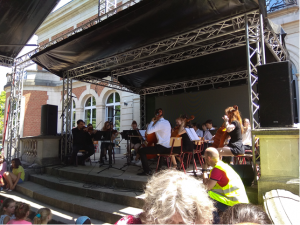
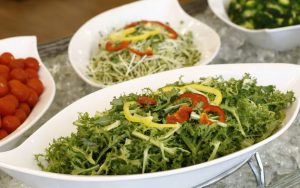
 The Solidarity Village was a novelty in the Fête. The main aim was to bring along a handful of social and solidarity organisations, so they could interact with our school community, explain volunteering possibilities, collect funds or simply become better known among families.
The Solidarity Village was a novelty in the Fête. The main aim was to bring along a handful of social and solidarity organisations, so they could interact with our school community, explain volunteering possibilities, collect funds or simply become better known among families. The Comité des Elèves (CdE) has been really happy to work with the APEEE and especially the Fête Team. Something that surprised us students a lot in the organisation part was the good vibe in the meetings. We hope the cooperation between students and parents will remain this positive for the preparation of future Fêtes. Thanks to this cooperation the CdE managed 9 stands. The most profitable one was the Hoodie stand, since we sold 840 hoodies. Even if we tried to work efficiently, there was still a too long queue. For further years we will plan more CdE people to be there! We also supervised most of the Bouncy Activities. They were a great success, it seemed like the children loved them. Unfortunately we did not reach our main aim with these activities since they didn’t attract secondary students. But it was still a great success among primary students. Next to this bouncy land, we had the popular Cotton & Candy and Popcorn stand. We sold a total of 650 Candy flosses and a lot of popcorn to kids as much as to parents. Overall the fête was an enjoyable day that brought people together around a big event in our school.
The Comité des Elèves (CdE) has been really happy to work with the APEEE and especially the Fête Team. Something that surprised us students a lot in the organisation part was the good vibe in the meetings. We hope the cooperation between students and parents will remain this positive for the preparation of future Fêtes. Thanks to this cooperation the CdE managed 9 stands. The most profitable one was the Hoodie stand, since we sold 840 hoodies. Even if we tried to work efficiently, there was still a too long queue. For further years we will plan more CdE people to be there! We also supervised most of the Bouncy Activities. They were a great success, it seemed like the children loved them. Unfortunately we did not reach our main aim with these activities since they didn’t attract secondary students. But it was still a great success among primary students. Next to this bouncy land, we had the popular Cotton & Candy and Popcorn stand. We sold a total of 650 Candy flosses and a lot of popcorn to kids as much as to parents. Overall the fête was an enjoyable day that brought people together around a big event in our school. You are invited to read the December 2018 edition of the Berkendael Newsletter -
You are invited to read the December 2018 edition of the Berkendael Newsletter -